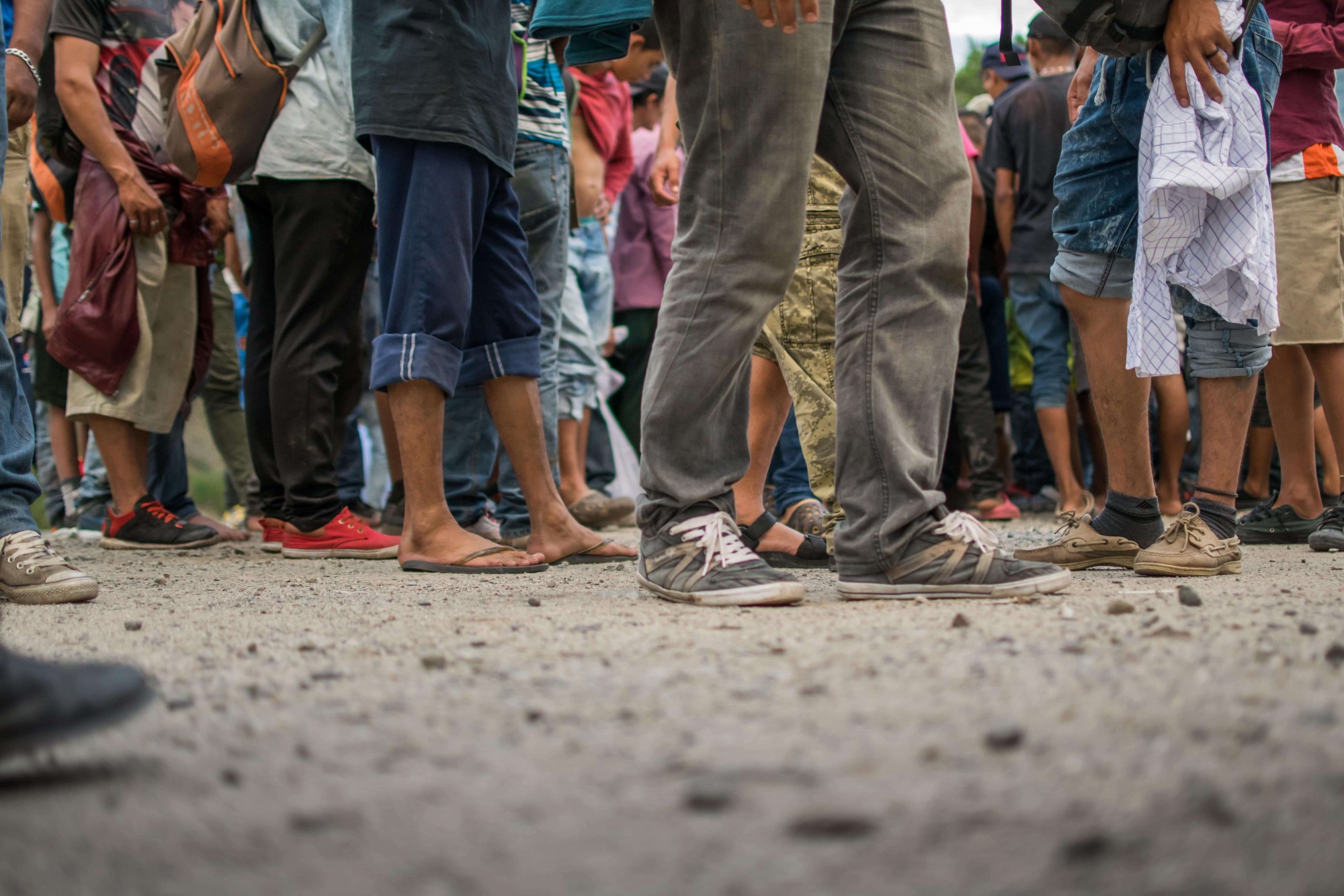Africa Climate Summit in Kenya: A Summary
20 September 2023
20 September 2023

By Geoffrey Otieno, Equidem Africa Investigator.
As an African, I know all too well that the continent is on the frontlines of the changing environment: we can feel it in the droughts that have caused famines that have killed our people and animals and in the extreme floods that have ruined houses and farms. As an investigator with Equidem who tracks labour and human rights violations, and a former migrant worker who spent years in Qatar, I am additionally aware that there is a straight-line connecting climate change to workers and injustice all around the world.
I was glad to attend last week’s inaugural Africa Climate Summit in Kenya. Many important commitments were made at the event, and I was heartened that our leaders were candid for the first time ever in articulating truths that the world needs to be reminded of, including that climate change is “relentlessly eating away” at our chances to move forward. I was proud to hear my President speak the truth: “Those who produce the garbage refuse to pay their bills.”
In sharp contrast to the significant steps made at this Summit in relation to climate change and finance was the dearth of discourse on people. Climate change is inextricably linked with labour and migration. Given that the African continent has long since grappled with weak socio-economic indicators in arenas such as health and education for the poorest and most vulnerable, these groups are integral to the debate. In particular, workers for whom climate impacts are an everyday reality must be part and parcel of the reimagined future for both Africa and the world. It should not be that discourse on climate change mitigation and adaptation centre the rich, who have access to air conditioned rooms, while farmers must contend with lost livelihoods or worse in the midst of extreme weather like floods or droughts and migrant workers are left to build stadiums and seven-star hotels in skyrocketing temperatures.
The many allies I have in the climate space have often echoed my concerns: that vulnerable populations should be better included in this dialogue, particularly at official events such as this one.
I have seen the impacts of climate change on workers through my own lived experiences. As a construction worker and safety officer during preparation for the Qatar World Cup, I watched tourists from higher income groups flock to watch matches in air conditioned stadiums. These stadiums were built by the hard work of Africans and South Asians, many of whom still remain unpaid. Much of the work of construction entails working in the extreme heat, often without sufficient breaks, on occasion, access to water, or even to rest areas for some respite. My compatriots from the region had often emigrated with their own dreams- and some had even taken loans to pay illegal recruitment fees, only to face modern day slavery working conditions in unrelenting heat. If we are to truly consider what climate change means for Africa and the larger world, we need to place workers, especially those facing employment precarity, at the centre of this conversation.
Many positive developments did take place at the summit and it is my hope that the commitments will be honoured. During previous engagements on climate change, countries responsible for emissions have committed to allocate resources to pay for their role in this catastrophe. This has led to the creation of funds where countries that are most vulnerable to climate change can access money to help them adapt to these new changes and mitigate the risks. I was very glad to see that the nations in attendance at the Summit have accepted responsibility to follow through on the promises they made to make available $100B in annual climate finance.
The plans to operationalize a Loss and Damage facility to compensate countries like Kenya from the losses suffered and damage incurred by climate-change related phenomena like droughts, famine and floods are also critical and need to be followed through. If carried out, this would give Kenya a fund so that it can compensate farmers for loss of crops and herders for loss of livestock. The plan to create this facility has been in the works for some time. I hope that the commitments made at the Summit will add urgency. Climate change is not stopping.
Additionally, the agreements to accelerate the process of phasing out coal and abolishing fossil fuel (dirty energy) subsidies and the creation of an AU Climate Change and Resilient Development Strategy and Action Plan were both welcomed.
The global majority feels - truly feels - the impacts of the decisions made by powerful people, often in faraway places. There cannot be a just transition to address the climate crisis without working people's representation and solutions in their interests.”